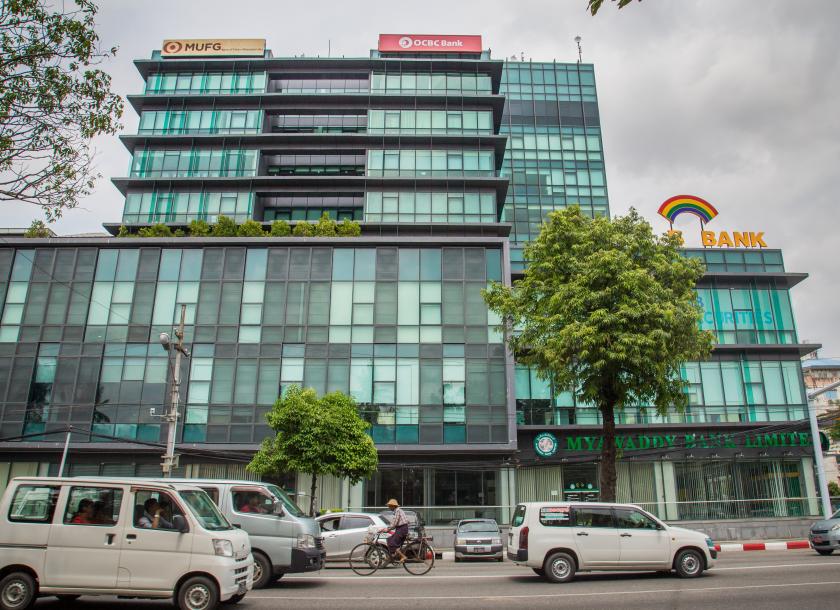Myanmar to approve five specialised banks for targeted lending
The Central Bank of Myanmar (CBM) will approve the forming of five sector-specific banks, according to a directive from the President’s Office to the central bank.
Under the directive, the President’s Office has instructed CBM to approve the opening of Myanmar Tourism Bank, Mineral Development Bank, Glory Farmer Development Bank, Mandalay Farmer Development Bank and Shwe Nann Saw Bank, sources said.
“We’ve known about this instruction. But it is better asking the President Office about details,” an official from the CBM told The Myanmar Times.
CBM senior officers have not responded to emails seeking details of the banks. Similarly, no official announcement granting permission for the five banks has been released.
In the meantime, banking insiders said the new banks will likely operate as specialised financial institutions targeting lending to sector-specific businesses.
Currently, there are five similar banks in operation, including the Myanmar Micro Finance Bank, Naypitaw Sibin Bank and Construction and Housing Development Bank, which were granted permission to operate in July 2013 under U Thein Sein’s former administration.
The other two sector-specific banks are Shwe Rural and Urban Development Bank which was approved in July 2014 and Ayeyarwaddy Farmers Development Bank, which was approved in November 2015.
Targeted assistance
U San Thein, financial sector development expert at the German Society for International Cooperation (GIZ), reckons the development is positive for the Myanmar economy.
“Raising the number of specialised banks will enable businesses within the different sectors to get more targeted financial assistance than general commercial banks. As such, businesses have a better chance to get loans from the bank to expand,” he said.
“In Myanmar, a country where many businesses are unable to qualify for financial assistance, establishing specialised banks that focus on lending to each specific sector can offer opportunities to many more start-ups and businesses, giving them a chance to expand,” he added.
Not common
However, there are also risks. “Having too many specialised banks is risky if the sector they are operating in faces a downturn. So, such banks must have good risk management procedures in place,” U San Thein said.
In fact, the setting up of specialised banks outside of Myanmar is not at all common. “In foreign countries, providing banking services for each sector is a rarity,” said U Than Lwin, former deputy chair of the CBM and senior consultant at Kanbawza Bank.
The way he sees it, “Instead of targeting the sectors, it would be better for there to be banks targeting the regions. For example in Shan State, there should be a Shan State development bank. This way, the banks can focus on lending effectively to businesses in each region,” he said.
The CBM should also systematically monitor the specialised banks so that they don’t give out additional financial assistance to those with connections to their financiers. “Specialised banks are established by groups and members from respective businesses. Therefore, if a bank gives out most of the financial aid to its related parties, it defeats the purpose,” U Than Lwin said.
Existing CBM policies and directives state that in order to start a bank, initial capital reserves should stand at K20 billion. Currently, 24 commercial banks and 5 specialised banks have received approval to operate in Myanmar.
Source: https://www.mmtimes.com/news/myanmar-approve-five-specialised-banks-targeted-lending.html


 English
English




